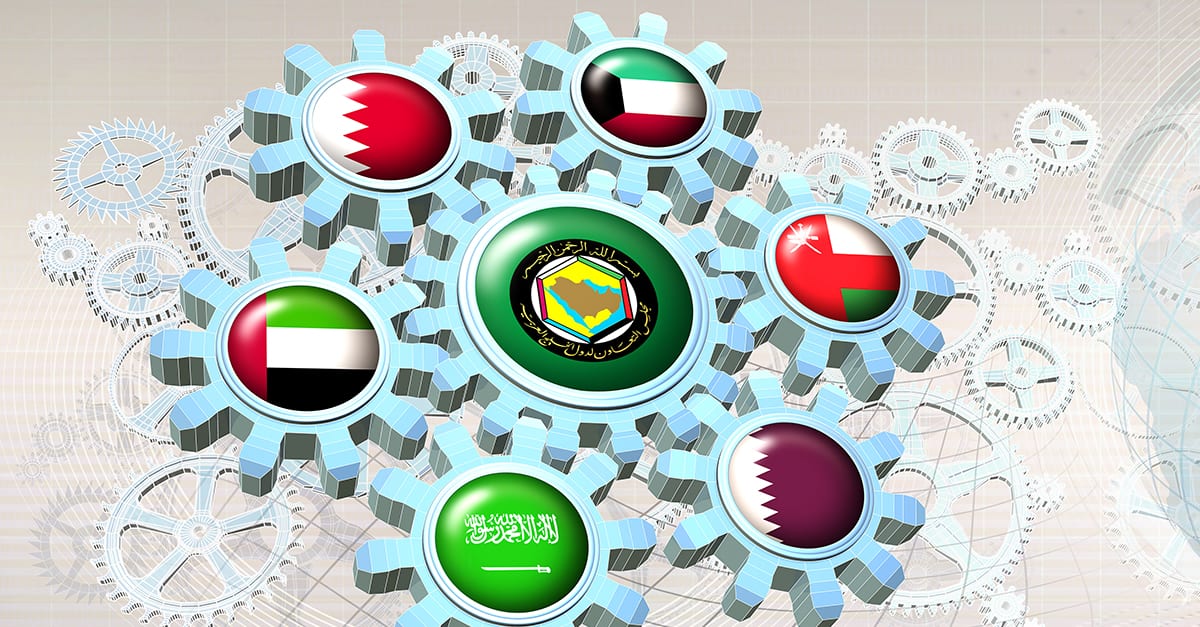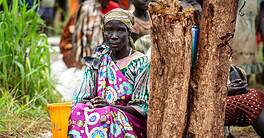In the aftermath of the pandemic and plummeting oil prices, GCC banks are looking to scale abroad, acquire new customers and grow globally.

The Gulf Cooperation Council (GCC) is home to some of the world’s most profitable banks, but their wealth is often tied to ample government oil-backed deposits. Rich Arab monarchies are well aware that to remain relevant they must diversify their economies. The pandemic and the historic oil crash that followed acted as strong reminders.
Thanks to high levels of liquidity and capitalization, GCC lenders weathered the storm well. Most rated banks remained profitable, while only a few registered losses. The aftermath of the pandemic, however, might prove tougher. Oil prices have picked up, but the future of the industry remains clouded with the prospect of a global energy transition. As government stimulus packages are being eased out, banks’ profitability and asset quality is expected to deteriorate.
According to a recent report by S&P Global Ratings, “GCC banks’ operating performance will remain constrained by the protracted recovery in key economic sectors,” such as aviation, tourism and real estate. While this might take a long time, GCC banks are already looking at new markets.
“There is a recognition that growth might be somewhat limited within the GCC because countries are relatively small and continue to be highly dependent on hydrocarbons,” says Tarek el Nahas, group head of international banking at Mashreq Bank, the UAE’s largest private lender and one of the few banks to have scaled abroad decades ago. Today, the bank derives 20% of its revenues from international business.
“Historically, GCC banks’ international business was a bit ad hoc: Branches were opened abroad but the strategy was not 100% clear,” he adds. “Now, there is a general wake-up call to try and do more with these networks.”
Starting the Journey
Few GCC banks have established a presence outside their home market. Those that have done so typically set up small offices in global financial centers such as New York, Geneva, London or Singapore to service their wealthy clients abroad. In recent years, GCC banks started to expand into neighboring countries and compete to become the dominant regional player.
Saudi Arabia is one of the first destinations for growing a regional network. The kingdom’s rapidly transforming economy offers huge opportunities for wealth management and investment banking. Emirates NBD was the first foreign lender to establish a presence in the holy cities of Mecca and Medina. Dubai’s largest bank operates six branches in the kingdom and recently received approval from the Saudi central bank to quadruple its presence. Other investment banks are following suit: Bank Mashreq applied for a license; First Abu Dhabi Bank (FAB) is opening several branches, while Bahrain’s SICO bought a majority stake in Muscat Capital, a Saudi-based subsidiary of Oman’s Bank Muscat.
Outside the Gulf, GCC lenders have turned toward Egypt, one of the region’s largest economies, with more than 100 million citizens. “We look at Egypt as a huge standalone opportunity,” el Nahas notes. Egypt offers a brand-new client base, tech-savvy unbanked populations and potential remittances from migrant workers in the GCC. Mashreq started operating in Egypt in 2009 and is expanding.
“We are constantly opening new branches and onboarding new clients,” he says. “We are also actively looking at launching our digital banks [Neo and NeoBiz] there. It would be extremely powerful, since financial inclusion is still very low.”
Acquiring a license is difficult. As the Egyptian central bank doesn’t issue new ones, the only way in is to buy out an already-registered bank. The last ones to sell were Blom Bank and Bank Audi. The Lebanese lenders are forced to sell off their Egyptian operations due to the unprecedented economic crisis in their home country.
In January, Bahrain-based Bank ABC acquired Blom’s 41 Egyptian branches for $480 million. In April, FAB received regulatory approval to acquire Bank Audi’s network for an undisclosed amount. The ongoing merger should be completed in 2022. The UAE’s biggest bank, which already has 17 branches in Egypt, will significantly increase its footprint in the country and become one of the biggest foreign lenders by assets.
Emirates NBD—which acquired BNP Paribas Egypt in 2013 and Turkey’s DenizBank in 2019—followed both deals closely. For Dubai’s biggest bank, strengthening Egyptian operations is a must to consolidate a regional presence. “Given the maturing nature of our home market, Turkey and Egypt are central to our strategy of becoming a true regional champion,” says Neeraj Makin, Emirates NBD’s senior executive vice president and group head of International and Group Strategy. “These large and fast-growing countries provide us with true geographical and income diversification. It is an avenue for our group’s growth.”
Although smaller in assets, Bahrain’s Ahli United Bank also has regional ambitions. During the pandemic, it increased its stake in Ahli United Egypt to 95.7% and its equity stake in Commercial Bank of Iraq, its Iraqi subsidiary, to 80.3%. It is eyeing new opportunities in the UAE and in Turkey.
“The focus on increasing stakes in existing investments reflects the greater knowledge of these respective operations and challenges, even under the disruptive Covid-19 environment,” says Adel El-Labban, CEO of Ahli United, Bahrain’s biggest bank. “Our targeted region has a young and growing population with an expanding middle class and low banking penetration.”
Crossroads Between Asia and Africa
For some lenders, the game is already much bigger. As GCC economies diversify, so do corporates, and banks have to keep up with their clients.
“The drop in oil prices has sped up the need for GCC clients to diversify,” says Mashreq’s el Nahas. “We are seeing a lot of our home-base customers growing out of the UAE, now asking to be serviced by their bank in as many countries as possible.”
The toughest competition is in European and US markets. Arab banks can, however, leverage their geographical position at the crossroads between Asia and Africa. “We are seeing much more trade flow from the US to Africa and from China to Africa,” he says. “A lot of Chinese companies are setting up regional offices in Dubai to service MENA [the Middle East and North Africa] and [sub-Saharan] Africa. China is becoming a much more dominant player in both MENA and Africa, and we want to be in the middle of those flows.”
The commercial relationship between Asian countries and GCC states is already strong. Chinese Foreign Minister Wang Yi and GCC Secretary General Nayef Falah Mubarak Al-Hajraf met in March to continue discussions of potential free-trade agreements.
“There is considerable cross-border trade across the MENAT [Middle East, North Africa and Turkey] and South Asia regions, there are few banks with a true pan-MENAT presence that can service this trade corridor,” says Emirates NBD’s Makin. “Our strategy is to have a presence in strategic locations in Asia capturing the trade flows and, in the process, provide wholesale banking and private banking services to our customers.” Already established in Singapore, China and Indonesia, Emirates NBD plans to expand its footprint in India, where it currently has one branch.
Although retail banking remains limited, countries like China, India, Bangladesh and Nepal offer a strong base of workers who need to send money back home. According to the World Bank, two-thirds of the remittances to Southeast Asia come from the GCC.
Sub-Saharan Africa is a newer business venture, but as financial services develop across the continent, GCC lenders seem eager to grab a piece of the cake. “Historically, there is a robust trade and cultural linkage with some of the East African countries, with business groups using Dubai as a hub to trade with the rest of the world,” says Makin. “We see a number of clients and businesses growing their investments in this block.”
Sub-Saharan Africa allows GCC banks to diversify with large deals in sectors such as infrastructure, real estate, agriculture, renewable energy and new technologies. The UAE is actually now one of the top investing countries in sub-Saharan Africa, with strategic projects such as DP World, which runs port facilities in Senegal, Mozambique, Somaliland and Rwanda.
“Africa is a massively growing business for us,” says el Nahas. Mashreq is the top GCC bookrunner in Africa and operates foreign investments in 14 countries including Nigeria and Kenya. “We are looking at countries where we feel we can add value and product knowledge. It’s a very focused strategy that is starting to bear fruit.” For now, most African operations are run from the GCC, but banks are open to partnerships with local lenders.
The Covid-19 pandemic shook up the global economy, rerouted supply chains and opened new opportunities that mesh with GCC needs to diversify. Perhaps most importantly, the global health crisis has changed mindsets, enabling banks in the GCC—and elsewhere—to revise and restructure for the future.



